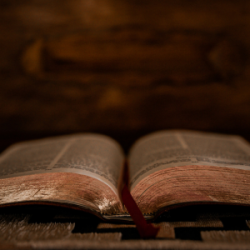Welcome readers! Please subscribe through the buttons on the right if you enjoy this post.
(Read this series from its beginning here.)

To save Jesus followers socially, our gospel must include but not be focused solely on an execution, and also emphasize the deep significance of the story’s focus on resurrection.
Jesus stood in the justice tradition of the Hebrew prophets before him. It was a tradition that called for the end of politics dependent on violence, economics dependent on exploitation, and religion dependent on the exclusion of others. Far from Jesus’ unjust execution being what satisfied cosmic justice, the murder of Jesus on a Roman cross was an act of injustice. The resurrection, in the story, is a symbol of that death-dealing being overcome. It puts Jesus on the side of those opposing those systems.
Our gospel is the story of a Jesus critiquing all exclusionary and exploitative politics, economics, and religious expressions, unmasking them for what they are, and calling us to live in opposition to those systems, too.
The story calls us to begin by identifying our oppressive political, economic, and religious systems today for what they truly are. We can no longer stand in solidarity with death-dealing systems. We have to take our cue from Jesus and stand with the victims of those systems, even if we have previously been “persecutors” or oppressors rather than allies. In the story of Jesus, the main character has the power to change us from oppressor to comrade, to inspire us to stand with those being oppressed and to critique unjust systems and work for change. This Jesus calls us to believe that these kinds of systems can be defeated and stripped of their power over us through their very real threat of death and our fear of death.
”We tell you the good news: What God promised our ancestors he has fulfilled for us, their children, by raising up Jesus.” (Acts 13:32-33)
”For he has set a day when he will [put the world to right] with justice by the man he has appointed. He has given proof of this to everyone by raising him from the dead.” (Acts 17:31)
The resurrection focus of the book of Acts and the gospels calls us to imagine a world where our politics, economics, and religion have been replaced with the love of others expressed in justice. Ways of domination are replaced with care. Exploitation is replaced with ensuring everyone has what they need to thrive. And exclusion is replaced with an inclusion that centers those who used to be left outside. The story calls us to imagine a human community characterized as life-giving for all, not death-dealing to some.
Understood this way, the resurrection story, the resurrection of one executed by systemic injustice and the ones privileged by it, has the power to help Jesus followers rethink everything.
This truth, I believe, does have the power to set us free.
There is a stark difference between preaching a violent death that substitutionally assures us of postmortem bliss, and teaching about an unjust execution by the powers that be that was interrupted, reversed, undone, and overcome. This story can point us, not simply to liberated and healed individuals, but also to a liberated and healed world.













